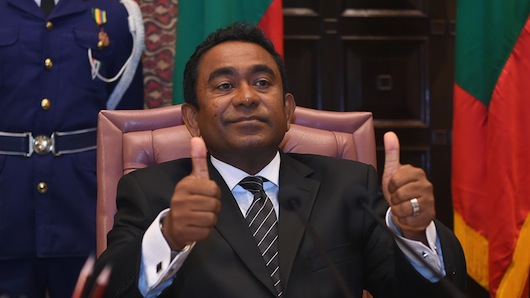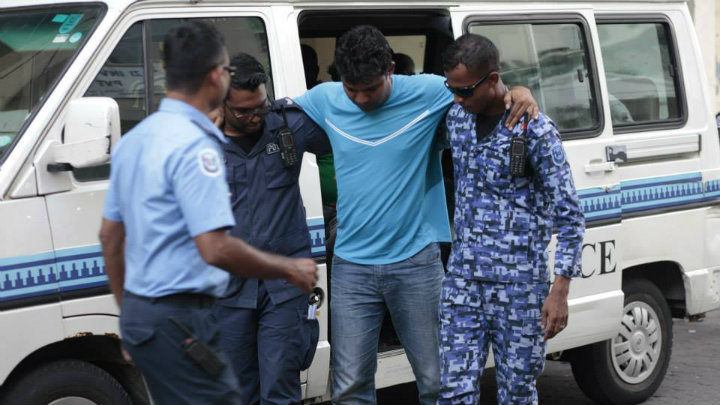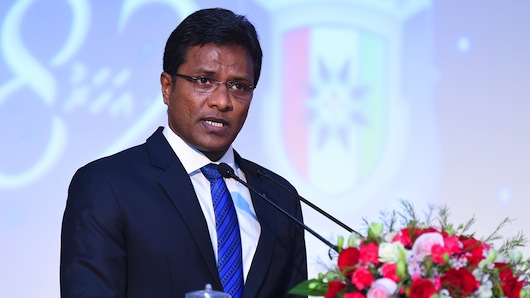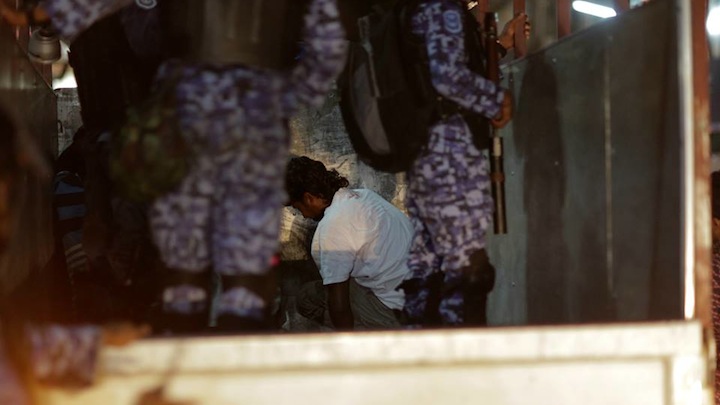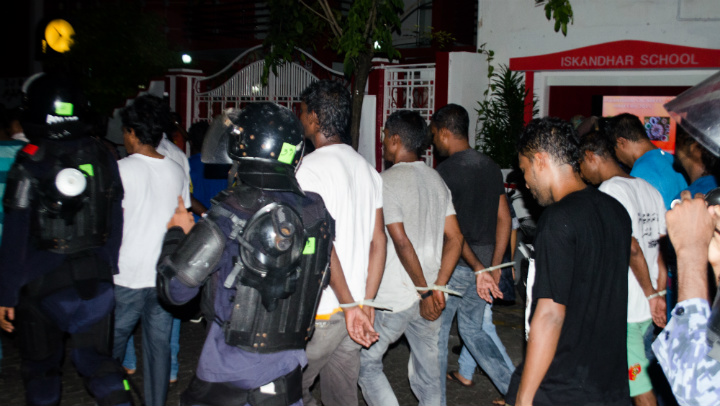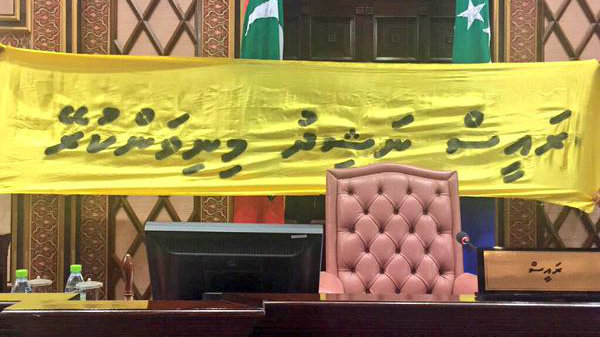President Abdulla Yameen has called on the opposition to begin talks for the “stability and the benefit of Maldivian citizens,” but the president’s office says discussions can only be held on “lawful demands.”
The Maldives has been gripped by political turmoil over the imprisonment of ex-president Mohamed Nasheed and former defence minister Mohamed Nazim.
The president has previously described the allied opposition parties’ demands for the pair’s release as unlawful, saying they must appeal their sentences at the high court.
President Yameen stresses he has no role in Nasheed and Nazim’s incarceration, insisting charges were raised by the independent prosecutor general’s office and tried in independent courts.
Speaking to Minivan News today, the president’s office Spokesperson Ibrahim Muaz Ali said the government’s stance “has not changed,” stating: “There are boundaries and limits to everything, and in this case it is the law.”
President Yameen’s earlier refusal to substantially engage with the opposition had resulted in a 20,000-strong march in Malé on May 1. Nearly 200 people were arrested and hundreds were injured in clashes.
The leaders of the Maldivian Democratic Party, the Adhaalath Party and the Jumhooree Party were arrested shortly afterwards, and remanded for 15 days.
When asked if the president’s office was ruling out negotiations on Nasheed and Nazim’s release, Muaz said the government has not set an agenda or a representative for negotiations, but reiterated that talks can only proceed on “demands the president can meet.”
He once again said the pair must appeal their sentences, and said the president was merely repeating an earlier appeal for talks.
The opposition has previously accused the government of insincerity in overtures for talks, especially after President Yameen appointed tourism minister Ahmed Adeeb as his representative. The opposition had accused Adeeb of corruption and illicit connections with gangs and had insisted President Yameen himself must sit down with them.
Nasheed was sentenced to 13 years in jail on terrorism and Nazim was sentenced to 11 years on weapons smuggling charges. The trials have been condemned by foreign governments and international bodies including the UN for apparent lack of due process.
Nazim has filed an appeal, but Nasheed was unable to as the criminal court failed to provide required documents within the ten day appeal period, shortened by the Supreme Court a month before his arrest.
The government, however, maintains Nasheed can still appeal, but his lawyers say the Supreme Court’s new regulations are silent on late appeals.
The apex court had struck down an earlier provision giving judges the discretion to accept late appeals in the same ruling that shortened the 90-day appeal period to ten days.
Nasheed’s family has now asked the UN working group on arbitrary detention to rule his imprisonment as illegal and arbitrary.
The allied opposition parties are also calling on the government “to stop targeting” Jumhooree Party leader Gasim Ibrahim’s businesses. The tourism ministry in February slapped a US$90.4 million fine on Gasim’s Villa group, which the company insists is unlawful.
The central bank yesterday froze the bank accounts of several of Villa group’s subsidiary companies.
